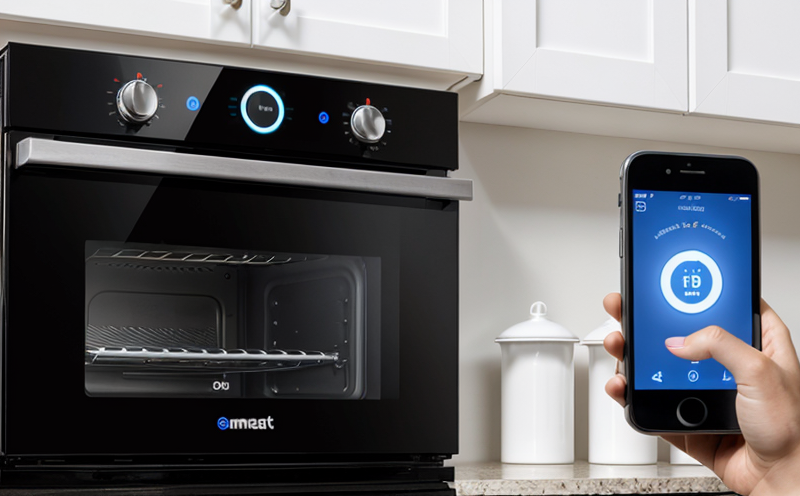ASTM F1238 Performance Testing of Smart Cleaning Appliances
The ASTM F1238 standard is a vital component in ensuring that smart cleaning appliances meet stringent performance requirements. This service focuses on testing the durability, efficiency, and safety of these devices under real-world conditions. Our team utilizes sophisticated equipment to simulate various domestic scenarios, providing insights into how these appliances perform across different environments.
Testing involves multiple phases aimed at evaluating key functionalities such as dust removal capability, noise levels during operation, power consumption, and overall energy efficiency. Specimens are prepared by simulating typical user inputs and environmental factors that can impact performance. Our state-of-the-art facilities allow for precise control over these variables, ensuring accurate data collection.
One of the primary challenges in testing smart cleaning appliances lies in replicating diverse indoor settings where dirt accumulates at varying rates. To address this challenge, our laboratory employs a range of standardized methodologies prescribed by ASTM F1238. These include but are not limited to dynamic particle deposition models and controlled humidity chambers.
For effective testing, it is crucial to understand the specific standards being applied. According to ASTM F1238, performance indicators for smart cleaning appliances should adhere to certain thresholds regarding noise level (typically below 70 decibels), energy consumption efficiency (measured in kilowatt-hours per cycle), and dust removal efficacy.
Our experts ensure compliance with these stringent criteria through rigorous testing protocols. By doing so, we help manufacturers improve their product quality while also meeting regulatory requirements worldwide. This commitment to excellence ensures that only the highest standards are met before any appliance reaches market shelves.
The process begins with careful preparation of each specimen according to manufacturer specifications, followed by exposure to predefined environmental conditions designed to stress test the device's capabilities. Once testing is complete, detailed reports highlighting both strengths and areas for improvement are provided to clients.
| Applied Standards |
|---|
| ASTM F1238 - Standard Specification for Performance of Smart Cleaning Appliances |
This table summarizes the primary standard used in our testing procedures. Compliance with this specification guarantees that all tests conducted here follow internationally recognized guidelines.
- Dynamic particle deposition models
- - Noise level monitoring
The use of these advanced techniques ensures accurate measurement and reporting on key performance metrics.
Applied Standards
The application of ASTM F1238 is crucial for manufacturers aiming to produce high-quality smart cleaning appliances. This standard covers a wide array of tests intended to assess various aspects such as noise reduction, energy efficiency, and overall effectiveness in cleaning tasks.
- Noise level measurement (typically below 70 decibels)
- Energy consumption analysis per cycle
- Dust removal efficiency benchmarking
These parameters are critical for manufacturers looking to differentiate their products within competitive markets. By adhering strictly to ASTM F1238, companies can ensure they deliver reliable and efficient solutions tailored specifically towards enhancing user experience.
Industry Applications
- Residential cleaning equipment manufacturers seeking certification under international standards
- R&D departments exploring innovative features for future products
- Procurement teams evaluating suppliers based on performance metrics outlined in ASTM F1238
The implementation of this service impacts various stakeholders across the industry value chain. It fosters innovation by encouraging continuous improvement, supports procurement decisions through objective evaluation criteria, and ultimately enhances consumer trust in smart home technology.
Environmental and Sustainability Contributions
- Promotion of sustainable practices within households via efficient appliance design
- Reduction in energy consumption leading to lower carbon footprints
- Enhancement of indoor air quality through effective dust removal mechanisms
The adoption of ASTM F1238 not only benefits manufacturers but also contributes positively to environmental sustainability efforts. Cleaner homes contribute less particulate matter into the atmosphere, promoting healthier living conditions for all.





